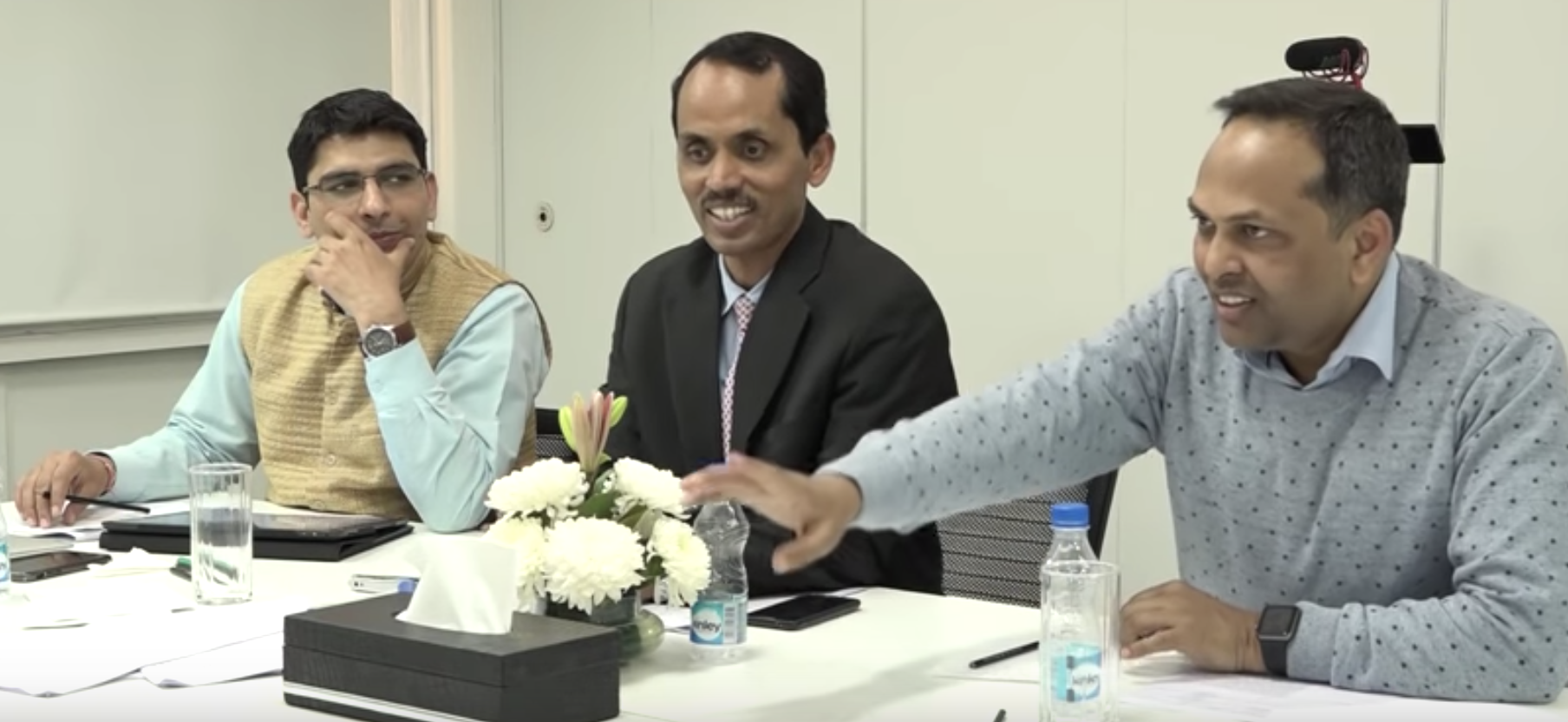Author: Root
-
[CD Exclusive] SWOT Analysis Questions for 3 Types of IAS Mains Qualified Aspirants
Let’s face the facts. Very few of us can face an IAS interview with gusto. The remaining lion’s…
-
SAMANVAYA: Students Preparing for UPSC 2020 > 5 months to go – get fired up
We have launched the Decimate Prelims Program. We are putting in our best effort to help all our…
-
SAMANVAYA: Students Preparing for UPSC 2020 > 5 months to go – get fired up
Click here to fill the form, tell us about your preparation and we will email you a revision…
-
Failed Prelims 2019! Don’t Worry CD Prelims Test Series 2020 can help you to rectify your Fundamental weakness
Here’s the link to the Prime Prelims TS brochure. Click2download | To understand the points in depth, we…
-
AWE – Reminder – Enrollments Open for the Months of January and February
Dear students, AWE Program is gaining popularity and seeing a lot of participation. We request all students…
-
SAMANVAYA: Students Preparing for UPSC 2020 > 6 months study plan.
Click here to fill the form, tell us about your preparation and we will email you a revision…
-
How to Steer Clear of Analysis Paralysis during your IAS Prep
Image Ref: Link “The maxim ‘Nothing avails but perfection’ may be spelled shorter: ‘Paralysis.’” ~Winston Churchill Have you…
-
AWE – Reminder – Enrollments Open for the Months of December and January
Dear students, AWE Program is gaining popularity and seeing a lot of participation. We request all students…
-
SAMANVAYA: Students Preparing for UPSC 2020 > 6 months to go!
Click here to fill the form, tell us about your preparation and we will email you a 6-month…
-
AWE – Reminder – Enrollments Open for the Months of December and January
Dear students, AWE Program is gaining popularity and seeing a lot of participation. We request all students…
-
Every topper who cracked the exam was once like you! #pushyourlimits
Toppers are no different from you! Yes there are some who are gifted with a better memory. There…
-
SAMANVAYA: Students Preparing for UPSC 2020 > Time to get serious with your prep!
Click here to fill the form and get a kickstart. Dear Students, Our lectures on paper discussions and…
-
Interview Calls! Here’s how they look
Early applicants to the Interview Program have an added advantage as we get to spend more time with…
-
*IMPORTANT -2 days left to join New Batches for Foundation Program, Prelims Test Series, Mains Essential Program and Samachar Manthan
Dear students, This is the right time to enroll in the courses. If you enroll now, you will…
-
Civilsdaily Interview Program 2019-20 > Rise up and peak at the right moment
Folks, The importance of the 3rd round of exam – The Personal Interview, cannot be underscored. If you…
-
SAMANVAYA: Students Preparing for UPSC 2020 > Come join US !
Click here to fill the form and get a kickstart. Dear Students, As the mains conclude, we have…
-
Tikdam Technique – How our Prime Test Series 2020 gives you an edge
Here’s the link to the Prime Prelims TS brochure. Click2download Click here to enroll for the Prime Prelims…
-
Why Grit Is More Important Than IQ When You’re Trying To Crack UPSC?
“Your Dreams are on the Other Side of Your Grit.” If there is just one takeaway which we…
-
23rd September 2019 | Daily Answer Writing Enhancement
ANNOUNCEMENT – There is a change in format. Students will now have to post answers on the questions…
-
20th September 2019 | Daily Answer Writing Enhancement
ANNOUNCEMENT – There is a change in format. Students will now have to post answers on the questions…
Join the Community
Join us across Social Media platforms.
![[CD Exclusive] SWOT Analysis Questions for 3 Types of IAS Mains Qualified Aspirants](https://d18x2uyjeekruj.cloudfront.net/wp-content/uploads/2019/12/interview.png)





